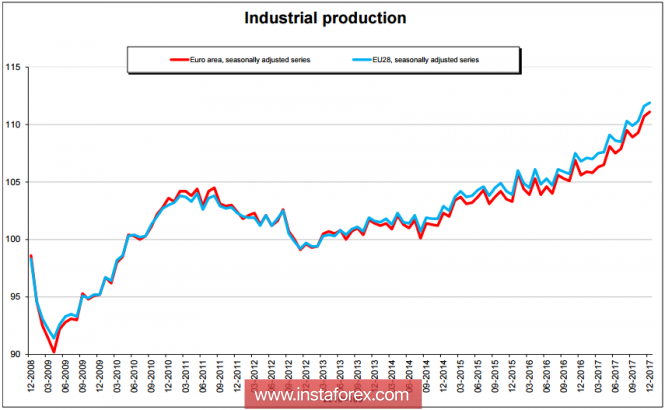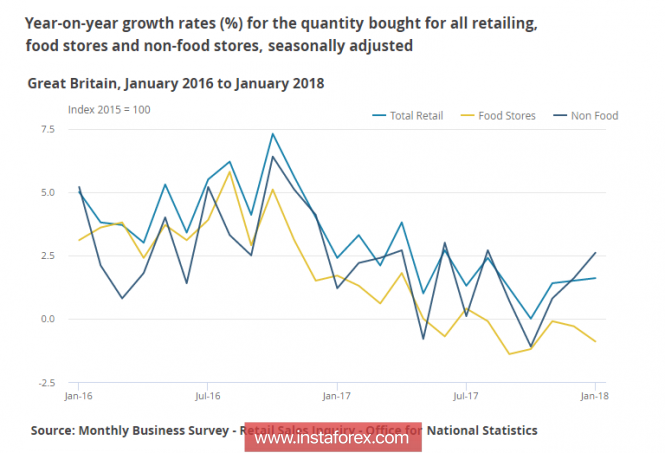Eurozone
The euro feels most confident among the G10 currencies, and the main reason for this confidence is a strong economic base. The eurozone demonstrates high growth rates in production, the trade balance is confidently proficient, and the indices of business activity and consumer confidence are overshooting.
The GDP growth rate in 2017 was 2.7%. This data coincided with the forecasts. Industrial production in December grew by 5.2%, which is higher than expected, and the trade surplus surpassed expectations.

Against the backdrop of strong economic growth and the inevitability of an exit from the soft monetary policy, the euro enjoys steady demand, and ECB officials are yet to show miracles of resourcefulness, at least somehow to cool bullish sentiments.
ECB board member Benoit Coeure said on Friday that the regulator is not too concerned about recent volatility in world markets, as the correction was orderly and limited. Also Coeure reiterated the position of the ECB - the rates will not be raised "for a long time" after the completion of the asset purchase program, and this position is shared unanimously by everyone in the ECB.
On Monday, the publication of the monthly report of the Bundesbank deserves attention. On Tuesday, ZEW will publish the index of economic sentiment in the eurozone, and on Thursday its version will be presented by IFO. For both studies, the forecasts are positive with an inclination towards a small decrease.
Also on Thursday the minutes of the January meeting of the ECB will be published, which are interesting from the point of view of the development of internal discussion.
The euro remains within the uptrend, the current decline is corrective, there is a potential to decline to 1.2320.
United Kingdom
The British pound was down on Friday in sync with the euro. The catalysts for the decline, in addition to strong data from the US, were rather weak figures in the report on retail sales in January. After a fall of 1.4% in December, January's growth was only 0.1%, with an annual growth rate of just 1.6%, the general trend heading towards a slowdown in sales after the referendum on Brexit is apparent.

Today, Prime Minister Theresa May will deliver a speech in Munich about Brexit, which can change the overall assessment of the situation on the state of the exit negotiations. Next week on Wednesday, a similar speech will be made by Boris Johnson. Demand for the pound in recent weeks was largely due to the fact that there was confidence in the favorable outcome of the negotiations, which both sides are striving for, and therefore investors do not particularly pay attention to the tension that is being pumped into the media.
The key day of the coming week will be released on Wednesday, when a report on the labor market will be published, and a report on inflation will be reported to parliament. On Wednesday, the market will develop a position in relation to the May policy meeting of the Bank of England and whether to wait for an increase in the rate.
The pound went into correction, but its positions look confident. The pound is in a downward channel since January, but this week it will look for an opportunity to go above 1.4140.
Oil and ruble
Oil sustained a period of panic selling, not falling below $ 60/bpd, convincing players of the fundamental solidity of current quotes. Despite the fact that the US continues to receive strong data on the record growth of production, it is more propagandistic in nature, as there is no growth in employment in the mining sector after the failure of 2014/17, employment has fallen to the level of 2007 and is in no hurry to recover. Oil has a chance to restore growth, which will support commodity currenices.
The material has been provided by InstaForex Company - www.instaforex.com
No comments:
Post a Comment